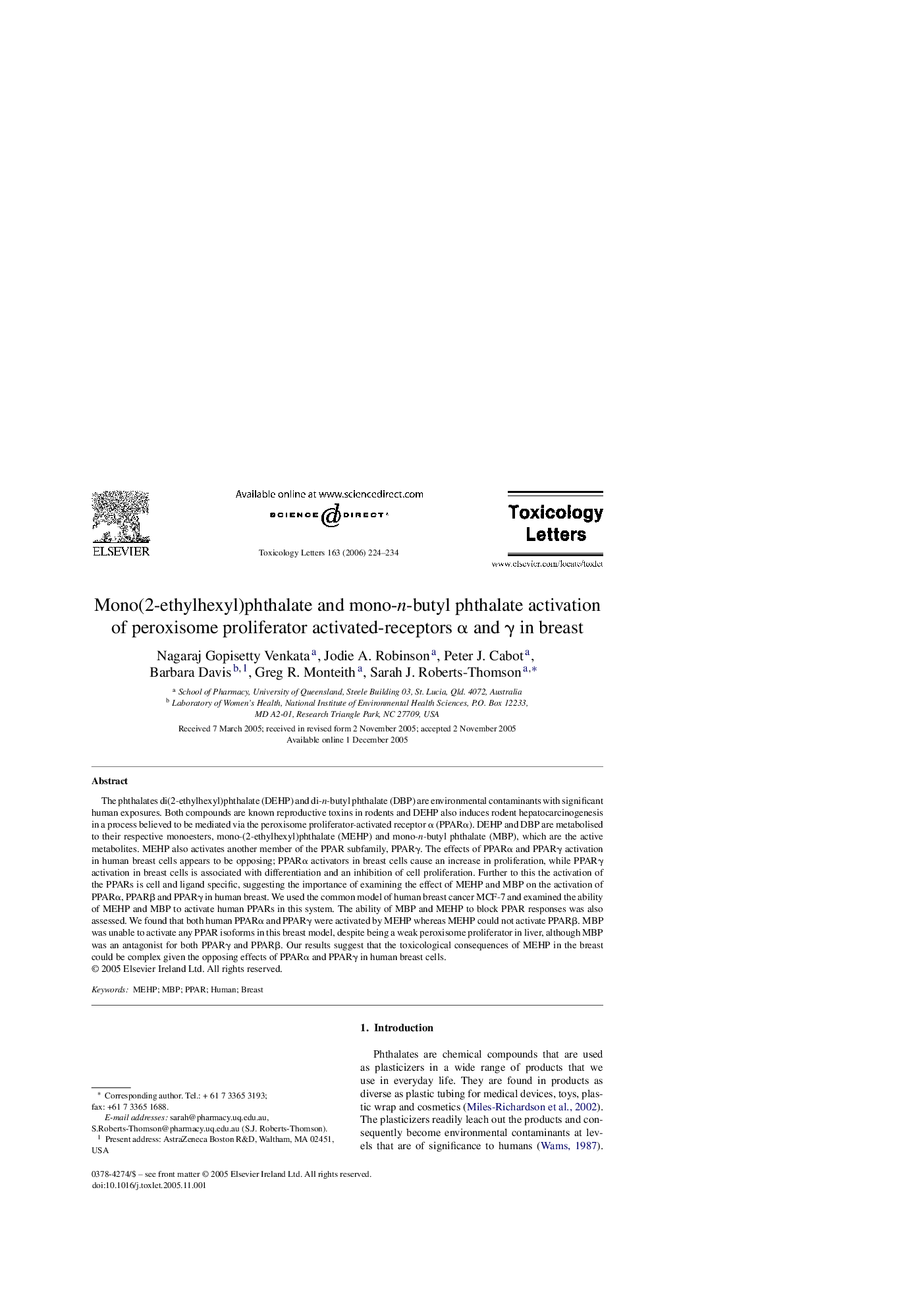| کد مقاله | کد نشریه | سال انتشار | مقاله انگلیسی | نسخه تمام متن |
|---|---|---|---|---|
| 2601206 | 1133306 | 2006 | 11 صفحه PDF | دانلود رایگان |

The phthalates di(2-ethylhexyl)phthalate (DEHP) and di-n-butyl phthalate (DBP) are environmental contaminants with significant human exposures. Both compounds are known reproductive toxins in rodents and DEHP also induces rodent hepatocarcinogenesis in a process believed to be mediated via the peroxisome proliferator-activated receptor α (PPARα). DEHP and DBP are metabolised to their respective monoesters, mono-(2-ethylhexyl)phthalate (MEHP) and mono-n-butyl phthalate (MBP), which are the active metabolites. MEHP also activates another member of the PPAR subfamily, PPARγ. The effects of PPARα and PPARγ activation in human breast cells appears to be opposing; PPARα activators in breast cells cause an increase in proliferation, while PPARγ activation in breast cells is associated with differentiation and an inhibition of cell proliferation. Further to this the activation of the PPARs is cell and ligand specific, suggesting the importance of examining the effect of MEHP and MBP on the activation of PPARα, PPARβ and PPARγ in human breast. We used the common model of human breast cancer MCF-7 and examined the ability of MEHP and MBP to activate human PPARs in this system. The ability of MBP and MEHP to block PPAR responses was also assessed. We found that both human PPARα and PPARγ were activated by MEHP whereas MEHP could not activate PPARβ. MBP was unable to activate any PPAR isoforms in this breast model, despite being a weak peroxisome proliferator in liver, although MBP was an antagonist for both PPARγ and PPARβ. Our results suggest that the toxicological consequences of MEHP in the breast could be complex given the opposing effects of PPARα and PPARγ in human breast cells.
Journal: Toxicology Letters - Volume 163, Issue 3, 1 June 2006, Pages 224–234